Columns
- Both the ruling SLPP and some opposition parties prefer general election first
- Hakeem and Ganesan in moves to bring about rapprochement between Wickremesinghe and Premadasa
- Speaker confident of defeating no-confidence motion against him next week
By Our Political Editor
As election fever mounts, both the ruling and some opposition political parties prefer a parliamentary election before a presidential poll.
In terms of the Constitution, the presidential election will have to be conducted between September 18 and October 18. A proclamation of the date would have to be made on July 17. In determining this, the Election Commission has taken cognizance of the date former President Gotabaya Rajapaksa took his oaths – November 18, 2019. The conduct of the parliamentary election, however, is now in the hands of the President. Here again, in terms of the Constitution, the President is empowered to dissolve Parliament once it has completed a tenure of two and half years.
The growing suspense over which poll would come first has been further exacerbated by the absence of the declaration of his presidential candidature by President Ranil Wickremesinghe so far. This is amidst a United National Party (UNP) team busy with the task of appointing electoral organisers. No doubt they will form the party’s candidates at a parliamentary election. They are also planning arrangements for the UNP to mark its May Day events at Independence Square. The team that gathered on Friday at the Presidential Secretariat for a meeting chaired by President Wickremesinghe included Sagala Ratnayake, Ravi Karunanayake, Akila Viraj Kariyawasam, Palitha Range Bandara, Kithsiri Manchanayake and Krishan Theodore.
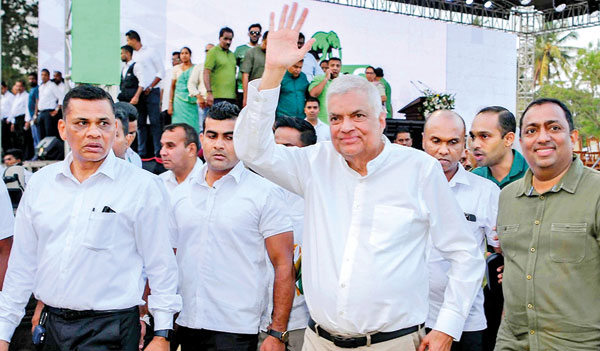
President Ranil Wickremesinghe at last Sunday’s UNP rally in Kuliyapitiya. On his left is Akila Viraj Kariyawasam.
Two party leaders from the opposition are spearheading a two-pronged campaign. One is to get the main opposition Samagi Jana Balavegaya (SJB) to urge President Wickremesinghe to hold the parliamentary elections before a presidential poll. The other is to explore the prospects of a rapprochement between Wickremesinghe and Premadasa, an almost difficult task. They are Sri Lanka Muslim Congress (SLMC) leader Rauff Hakeem and Democratic People’s Front (DPF) leader Mano Ganesan. Both parties now have five members each in Parliament. “We have sought a meeting and will push ahead with our proposals. We are conscious that some decisions are taken at the leadership level without consultation with the stakeholders. That will not deter us,” Hakeem said.
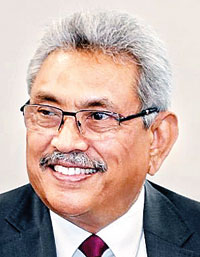
Gotabaya Rajapaksa
Even if the call for an early parliamentary election may merit consideration and even acceptance, one is not sure whether the SJB and Opposition Leader Sajith Premadasa would agree to a rapprochement with the president. A commonly spoken formula in parliamentary circles, though farfetched, is for Premadasa to be Prime Minister until the Presidency, to be held by Wickremesinghe, is retained for a limited period. Thereafter, the presidency is to be abolished.
Sources close to Premadasa cast serious doubts about the move becoming a reality. “The bitterness between them has grown to such high levels that Premadasa would not be receptive. Even at the UNP rally at Kuliyapitiya last Sunday, Wickremesinghe strongly criticised our leader. Moreover, he does not want to let down those who believed in him and joined the SJB,” these sources who did not wish to be identified said.
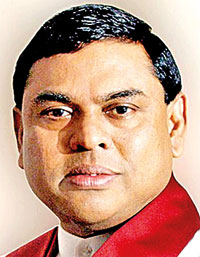
Basil Rajapaksa
“We are working on the SJB support. There are those in the SJB who favour a parliamentary election first,” SLMC leader Hakeem said. He added that they would also move towards the rapprochement of the two leaders. “That is the only way we can ensure stability in the country. If by chance there is a hung Parliament, there could even be a national government,” he pointed out. However, he acknowledged that a previous move for a national government, did not materialize. This was one of the first proposals made by President Wickremesinghe, he pointed out. It is only through a stable government, he said, that further economic reforms could be successful. Though there has been an upward trend in tea exports and tourism development, investment was lacking. Even the invitation for leaders in the opposition to meet the International Monetary Fund (IMF) delegation came too late, he said.
The call for parliamentary elections ahead of a presidential poll by the SLMC and the DPF found a partner. Sri Lanka Podujana Peramuna (SLPP) founder and strategist Basil Rajapaksa says he is personally in favour, too. As reported in these columns last week, he together with SLPP leader Mahinda Rajapaksa held a round of talks with President Wickremesinghe. As the report said, a considerable part of the time was taken to assess the current political situation. Both Mahinda Rajapaksa and Basil Rajapaksa thereafter raised questions on matters relating to policy connected to the economy and political issues. The duo were seeking President Wickremesinghe’s views before the SLPP could eventually formulate the stance towards a presidential candidate. There were queries on Wickremesinghe’s ethnic reconciliation programme too.
Basil expresses his views
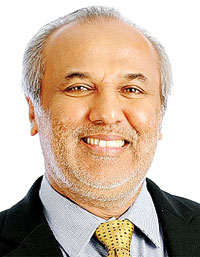
Rauff Hakeem
Basil Rajapaksa told the Sunday Times, “My personal view is that if a parliamentary election is held after the presidential election, the realistic thinking of the voter will not be reflected. Even if the presidential election is won by a single vote and the parliamentary election follows, one side could get unlimited power which is not good for the country. Therefore, if a parliamentary election is held ahead of the Presidential election we can have a balanced Parliament. By doing that nobody will get wiped out. We got a two-thirds majority power in Parliament last time. Voters need to think if such power should be given. If a parliamentary election was held first, that would not happen.
As for the SLPP, he said, there is no formal stance on which election should be held first. “The matter has not even come up for discussion. However, we must study the situation further and formulate our views.”
Basil Rajapaksa also expressed the same sentiments in an interview with a local television channel. He said the SLPP’s dialogue with President Wickremesinghe would continue. The SLPP strategist also said that in terms of organisational structures, both his party and the Janatha Vimukthi Peramuna (JVP)-led National People’s Power were better. However, the grassroots level support was for the SLPP and the SJB though the UNP had the most suitable presidential candidate in Ranil Wickremesinghe. However, the UNP was lacking in organisational structure and grassroots level support. Those were the pluses and minuses of political parties and their leaderships.
UNP leader President Wickremesinghe, according to a statement from his Media Division, told the meeting, “Assuming leadership, I did not anticipate steering the country to its current state. Yet, we are poised to emerge from the brink of bankruptcy sooner than anticipated. Talks with the International Monetary Fund and other official creditors are underway, with the aim of finalising agreements by May or June. This milestone will usher in a new era of opportunities as we transition to a solvent nation. Throughout this journey, we have prioritised alleviating the burdens of our people. Government employees will receive a substantial salary increase, with additional benefits slated for the upcoming Sinhala and Tamil New Year. Furthermore, initiatives such as the Aswesuma programme aim to provide economic security to millions.
“In our commitment to social justice, we are distributing 20 kilograms of rice to families in need during the upcoming festive season. Land rights are being granted to those holding permits, while permanent rights are secured for residents of 50,000 flats in Colombo. Despite challenges, we remain steadfast in our resolve to provide relief. The modernisation of agriculture is paramount to our economic agenda, with plans to transform the sector over the next decade. Additionally, measures to combat corruption have been instituted, underscoring our dedication to accountability. Legislative reforms, including the Women’s Empowerment Bill and the Gender Equality Bill are underway to promote gender equality. Amendments to laws addressing fiscal responsibility and violence against women reflect our commitment to progress. Furthermore, the establishment of dedicated units for women and children in every police station underscores our commitment to safeguarding vulnerable populations. These efforts are integral to the advancement of our nation’s citizens….”
No-faith move against Speaker
There were several other developments this week. Parliament will conduct a two-day debate on the vote of no confidence against Speaker Mahinda Yapa Abeywardena on March 19 and 20. The text of the motion alleging that during the Committee Stage of the Online Safety Bill in Parliament certain clauses of the Bill were allowed to be passed contrary to the ruling of the Supreme Court, despite objections raised by Opposition members, together with reported instances was published in these columns on March 3. In doing so, opposition parties supporting the motion have argued, that the Speaker had allegedly violated the Constitution.
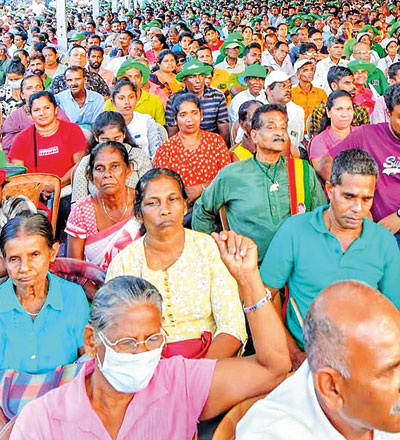
A section of the crowds at last Sunday’s UNP rally in Kuliyapitiya
The vote of no confidence, now listed in the Order Book of Parliament together with the signatories, states: Sajith Premadasa, Lakshman Kiriella, G. L. Peiris, (Mrs.) Rohini Kumari Wijerathna, Hesha Withanage, Dilip Wedaarachchi, Mano Ganesan, Maithreepala Sirisena, Rishad Bathiudeen, Niroshan Perera, Harsha de Silva, Ajith Mannapperuma, Nayana Wasalathilake, Buddhika Pathirana, Dayasiri Jayasekara, Shan Vijayalal De Silva, Chandima Weerakkody, M. A. Sumanthiran, Tissa Attanayake, Nalin Bandara Jayamaha, Hector Appuhamy, S. M. Marikkar, R. M. Ranjith Madduma Bandara, V. Radhakrishnan, Gayantha Karunatilleka, Kins Nelson, Mayantha Dissanayake, K. Sujith Sanjaya Perera, Ashok Abeysinghe, Rohana Bandara, K. P. S. Kumarasiri, Upul Galappaththi, J. C. Alawathuwala, (Mrs.) Thalatha Athukorala, Seyed Ali Zahir Moulana, Wasantha Yapabandara, W. H. M. Dharmasena, Kavinda Heshan Jayawardhana, Velu Kumar, Jayarathna Herath, Abdul Haleem, Thushara Indunil Amarasena, Charitha Herath and Vijitha Herath
Hon. Eran Wickramaratne,— Vote of No Confidence against Hon. Mahinda Yapa Abeywardane, the Speaker,— Whereas, by allowing the government to adopt certain Clauses of the Bill titled Online Safety during the Committee of the whole Parliament of the said Bill contrary to the determination of the Supreme Court in respect of that Bill disregarding the strong objections raised by Members of Parliament of the opposition to the effect that some Clauses of the Bill concerned were being passed in contravention of the determination of the Supreme Court regarding the Bill;
Particularly,
“(a) And whereas by allowing the passage of Clause 13 of the aforesaid Bill with a simple majority without incorporating the amendments specified in the determination of the Supreme Court, which had determined that the said Clause was inconsistent with Article 12 (1) of the Constitution and as such, should be passed with a special majority, and if it were to be passed with a simple majority, the amendments so specified should be effected;
“(b) And whereas by allowing the passage of Clause 17 of the aforesaid Bill as it was with a simple majority while the Supreme Court had determined that the said Clause was inconsistent with the Constitution and hence should be passed with a special majority and while the Attorney-General had informed the Supreme Court that the Clause concerned would be removed during the Committee of the whole Parliament;
“(c) And whereas by allowing the passage of Clauses 20, 33(6), 34(1) and 35(1) of the aforesaid Bill with a simple majority without incorporating the amendments specified in the determination of the Supreme Court, which had determined that the Clauses concerned were inconsistent with the Constitution and as such, should be passed with a special majority, and if they were to be passed with a simple majority, the amendments so specified should be effected;
“(d) And whereas by allowing the passage of Clause 21 of the aforesaid Bill as it was with a simple majority without acting in pursuance of the assurance given by the Attorney-General to the Supreme Court that the amendments necessary to pass the Clause concerned with a simple majority would be moved during the Committee of the whole Parliament when the Supreme Court determined that the said Clause was inconsistent with the Constitution and hence should be passed with a special majority;
“(e) And whereas by allowing the passage of Clause 22 of the Bill as it was with a simple majority, without incorporating the amendments specified in the determination of the Supreme Court, which had determined that the Clause concerned was inconsistent with the Constitution and as such, should be passed with a special majority, and if it was to be passed with a simple majority, the amendments so specified should be effected; and
“(f) And whereas by allowing the passage of Clause 31 of the Bill as it was with a simple majority, without incorporating the amendments specified in the determination of the Supreme Court, which had determined that the Clause concerned was inconsistent with the Constitution and as such, should be passed with a special majority, and if it was to be passed with a simple majority, the amendments so specified should be effected;
“And whereas it has been stated in the letter dated 08th February 2024, sent to the Speaker of Parliament by the Human Rights Commission of Sri Lanka, confirming this, and pointing out that the Supreme Court determination has not been followed with pertinence to passing certain Clauses of the said Bill and therefore, that there are serious concerns regarding the fact whether the number of votes required to pass the Bill as it is, has been received in Parliament;
“And whereas at the same time, whereas by allowing the Bill to be passed at the third reading without calling for a division, despite the request made by the Chief Opposition Whip calling for a division, at the third reading of the Online Safety Bill;
“And whereas and by endorsing the certificate on the said Bill, ignoring the request made by a group of Opposition Members from the speaker at the special meeting of the Party Leaders which was held on the 01st of February 2024, not to endorse the Bill until it is seriously scrutinized, as certain Clauses have been passed by the government contravening the determination issued by the Supreme Court at the Committee of the whole Parliament of the Online Safety Bill;
“And whereas, when the name for the post of Inspector-General of Police, recommended by the Hon. President was considered at the meeting of the Constitutional Council held on the 26th of February 2024, 4 members of the Constitutional Council voted for the appointment of that recommended person for the said post and 2 members voted against while 2 members abstained from voting and as such while the said recommended name for the post of Inspector-General of Police remained unapproved as per the provisions of the Constitution, the Speaker has unlawfully aided and abetted and sponsored the President to appoint the person recommended by the President to the post of Inspector-General of Police in an illegal and unconstitutional manner by stating in paragraph 4 of the letter dated 26th February 2024 that intimated to the President that:—
“However, as there are no provisions with regard to abstaining from voting at a meeting of the Constitutional Council as per Article 41(e) of the Constitution and if abstaining from voting is deemed as being opposed to, before the law and in relation to the aforementioned issue if it is deemed as a tie in voting as per Article 41(e)(5) of the Constitution, I hereby inform that I exercise my casting vote as the Chair.”
“And whereas, the Speaker has acted in a manner in blatant violation of the Constitution in handling the affairs of Parliament;
“And whereas, the Speaker has acted in a manner that public confidence in the supreme institutions of Parliament and the Constitutional Council would be eroded;
“And whereas, the Speaker has blatantly violated the Standing Orders of Parliament;
“And whereas, the Speaker has blatantly desecrated the independence and dignity of the office of the Speaker by clearly exhibiting that he acts partially;
“And whereas, the Speaker who is bound to protect the rights and privileges of the Members of Parliament impartially, has himself violated the rights and privileges of Members of Parliament; and
“And whereas, the Speaker has neglected to perform the functions and responsibilities of the office of the Speaker.
“That this Parliament resolves that it has no confidence in Hon. Mahinda Yapa Abeywardane, the Speaker, any longer.”
Speaker Abeywardena told the Sunday Times, “I strongly believe I have done no wrong during the passage of the Online Safety Bill. I have faithfully followed all procedures and adhered to the Standing Orders. The fault does not lie in me but elsewhere and they will learn of this. Since they are moving against me on wrong grounds, I will face it. However, they will not succeed.”
In an unrelated development, details of the Constitutional Council’s decision approving the appointment of Senior DIG Deshabandu Tennekoon as the Inspector General of Police have now surfaced. When the recommendation from President Ranil Wickremesinghe to appoint him as IGP was discussed, four members have approved it. Two had objected whilst another two have refrained. It has come to light that there was no legal provision to allow restraint or refrain from deciding. Hence, it is not recognised by law, said a legal source. It is in this backdrop, another source said, Speaker Abeywardena gave his casting vote. There are currently eight members in the CC. One more appointment is still pending. Speaker Abeywardena declined comment when asked about the CC meeting. He is the Chairman.
Wimal woes SLPP dissidents
The current political situation and the formation of an alliance became the subject of discussion by the Supreme Lanka Coalition or the Uttara Lanka Sabhagaya, when its leaders met to discuss the current political situation. It is headed by Wimal Weerawansa, leader of the National Freedom Front (NFF). They decided to appeal to all breakaway groups of the SLPP to join ranks so they may field a common candidate. A meeting has been summoned for March 23. Pivithuru Hela Urumaya (PHU) leader Udaya Gammanpila repeated his oft repeated theory that President Wickremesinghe will not contest the presidential election. He noted that only their front liner Vajira Abeywardena had claimed at public rallies that Wickremesinghe would be the UNP presidential candidate.
Weerawansa claimed that the policies of President Wickremesinghe, Sajith Premadasa and Anura Kumara Dissanayake were neo liberal. Charging that they were all bent on selling state assets. Communist Party General Secretary, Weerasumana Weerasinghe, was critical of the SLPP and said they would be badly hit at any election. There was a distraction when references to Weerawansa and Gammanpila in Gotabaya Rajapaksa’s book – The Conspiracy to oust me from the Presidency. He had said that “….there were personal issues that some of our important coalition partners like Wimal Weerawansa and Udaya Gammanpila had with the SLPP.
“All this contributed to the diminution of our political power. Basil was in control of the SLPP. When members of the ruling coalition picked quarrels with Basil that too had an impact on me as the head of the government. Wimal and Udaya had personal issues with Basil……”
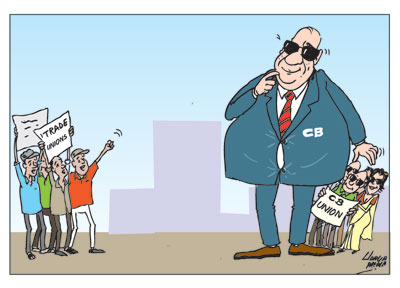
Both Weerawansa and Gammanpila were to claim that they supported Gotabaya who wanted to contest the presidency and not Basil and the references to them were factually incorrect. Others like Prasanna Ranatunga, Rohita Abeygunawardena and Nimal Lanza were in favour of Basil’s candidature. However, a fact check revealed that Basil had no plans to contest any elections since he held United States citizenship in addition to Sri Lanka. However, it is possible he could have renounced the US citizenship but he has shown no interest over such a move and has continued to discount them.
Senior UNPers were also making overtures to their onetime counterparts in the SJB in a bid to lure them. As the weeks go by, such activity is bound to peak. And the suspense over which election would come first will continue until President Wickremesinghe chooses to lay issues to rest with a declaration.
Buying or selling electronics has never been easier with the help of Hitad.lk! We, at Hitad.lk, hear your needs and endeavour to provide you with the perfect listings of electronics; because we have listings for nearly anything! Search for your favourite electronic items for sale on Hitad.lk today!


Which comes first—parliamentary or presidential poll?
View(s):